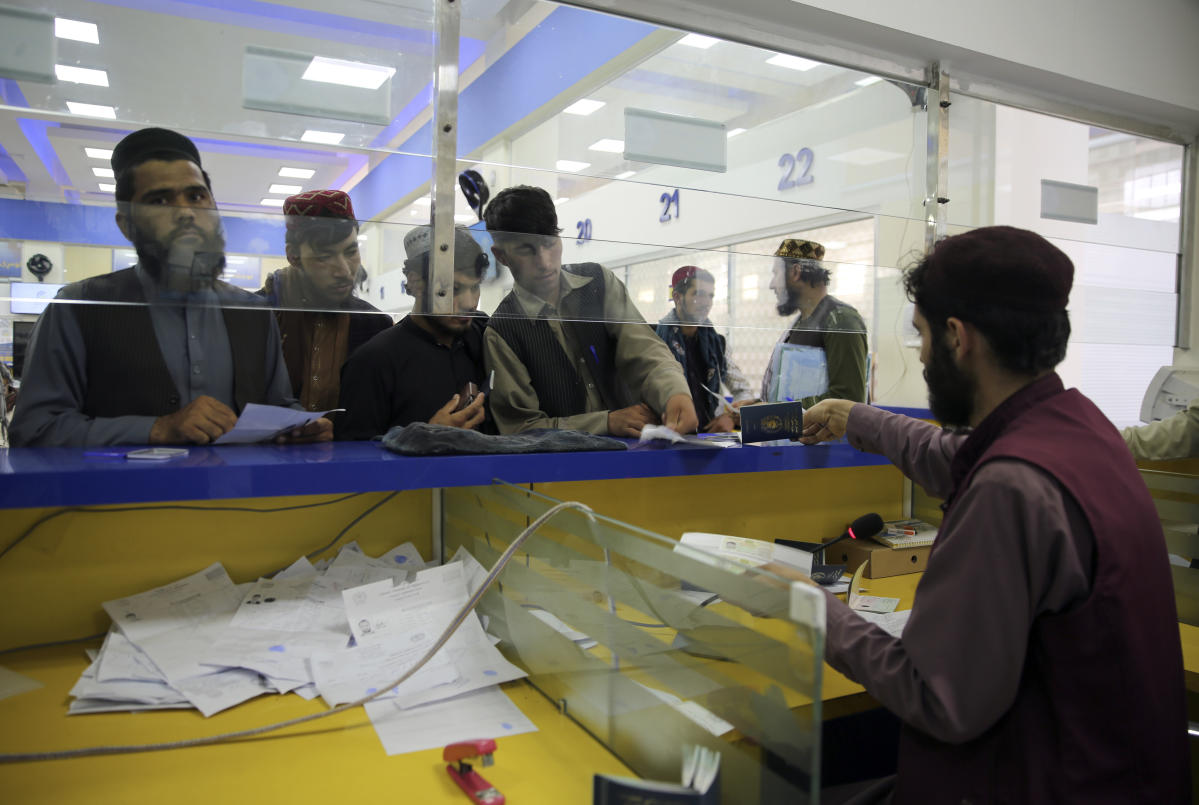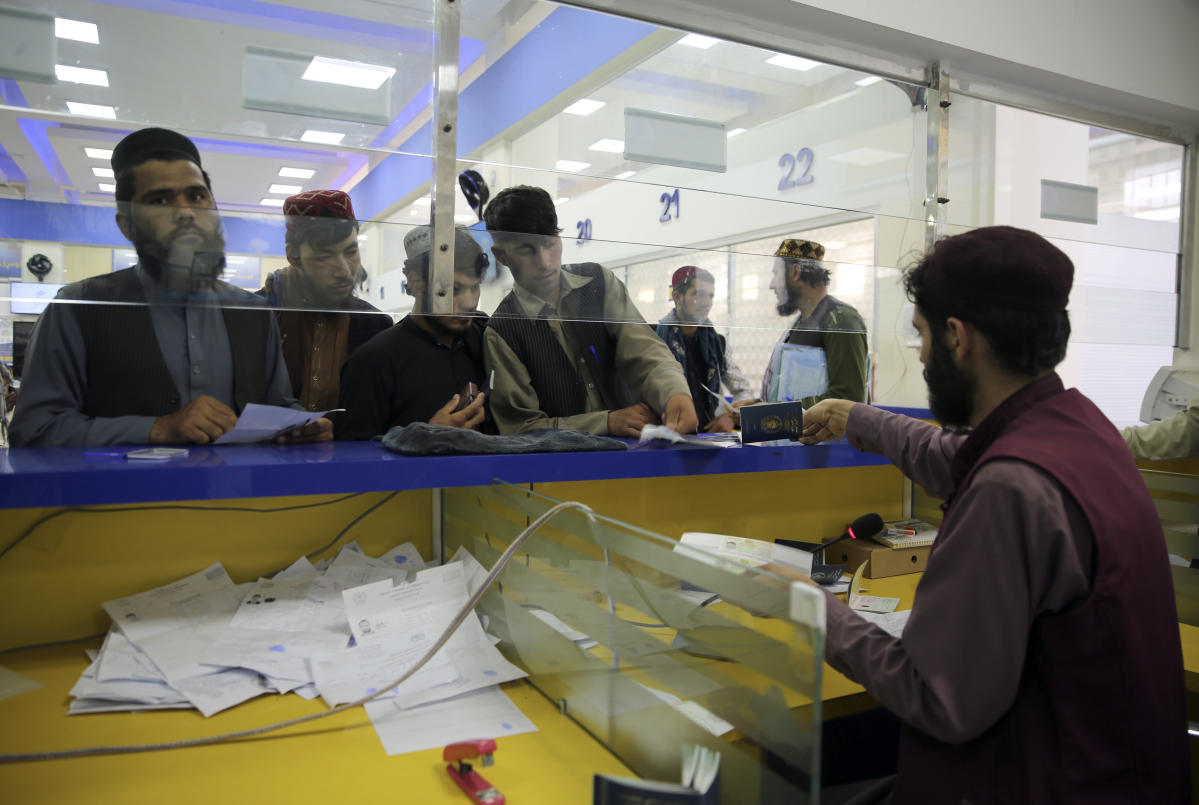
KABUL, Afghanistan (AP) — In parts of Afghanistan where there are no street names or house numbers, utility companies and their customers have adopted a creative approach for connecting. They use mosques as drop points for bills and cash, a “pay and pray” system.
Now the national postal service wants to phase this out by putting mailboxes on every street across the country, part of a plan to modernize a service long challenged by bureaucracy and war.
The lofty aspirations include introducing access to shopping via e-commerce sites and issuing debit cards for online purchases. It will be a leap in a country where most of the population is unbanked, air cargo is in its infancy and international courier companies don’t deliver even to the capital, Kabul.
The changes mean Afghans will pay higher service fees, a challenge as more than half the population already relies on humanitarian aid to survive.
The Afghan Post, like much of the country, still does everything on paper. “Nobody uses email,” said its business development director, Zabihullah Omar. “Afghanistan is a member of the Universal Postal Union, but when we compare ourselves to other countries it is at a low level and in the early stages.”
The postal service has 400 to 500 branches across the country and is key for completing administrative tasks like obtaining a passport or driver’s licence. It distributes up to 15,000 passports daily.
Another popular service is the certification of documents for admission to higher education or overseas institutions. The main Kabul branch has dedicated counters for it along with VIP lanes and a women-only area.
Post offices in Afghanistan are vital for women wanting to access services or products they would otherwise be denied, since they are often barred from entering ministries or other official premises.
But the spectre of the Taliban’s edicts targeting women and girls also looms at the Afghan Post.
At the entrance to the main Kabul branch, a sign tells women to correctly wear hijab, or the Islamic headscarf. One picture shows a woman with a red cross over her visible face. The other has a green check mark over the face because only her eyes are seen.
One woman visiting the branch was a 29-year-old medical graduate from western Farah province, who gave her name as Arzo. The Education Ministry wouldn’t let her in and dispatched her to the post office instead to get paperwork done.
She wanted to get her documents certified, a practical measure amid the country’s precarious economic situation and the sweeping restrictions on women and girls.
“Anything can happen at any time,” she said. “There are no jobs. There are many problems.”
It was her first time using a post office. She paid 640 afghanis, or $9, for each document and called the fees too high.
A more satisfied customer was 22-year-old Alam Noori from eastern Paktika province who came to collect his passport. “Piece of cake,” he said in English. In the past, he also used a post office to collect his driver’s license.
“I came to know about the post office through social media,” he said. “People in the city use it a lot because they are aware of it, but those in villages and districts aren’t.”
The Afghan Post’s business development director, Omar, wants services to be easier for people but conceded that it will take time.
“In most government agencies, people are wandering from public service to public service, so I want to serve people here, and that makes me very happy,” he said. “There is a need for a post office wherever there is a population.”
That’s where the plan to have a mailbox on every street comes in. They will be for paying bills, sending mail and submitting documents for processing.
But handwritten letters are disappearing, as they are in many parts of the world.
Hamid Khan Hussain Khel is one of the country’s 400 postmen, zipping around the capital on a motorcycle bearing Afghan Post’s jaunty blue and yellow. But he has yet to deliver a personal letter, despite serving the city’s population of five million for two years. He cited the popularity of smartphones and messaging apps.
He enjoys the work, which is less dangerous than it was during the decades-long conflict.
“When we meet people, their satisfaction makes us happy,” he said. “I haven’t seen a person not smile when they get their documents.”
EMEA Tribune is not involved in this news article, it is taken from our partners and or from the News Agencies. Copyright and Credit go to the News Agencies, email news@emeatribune.com Follow our WhatsApp verified Channel





